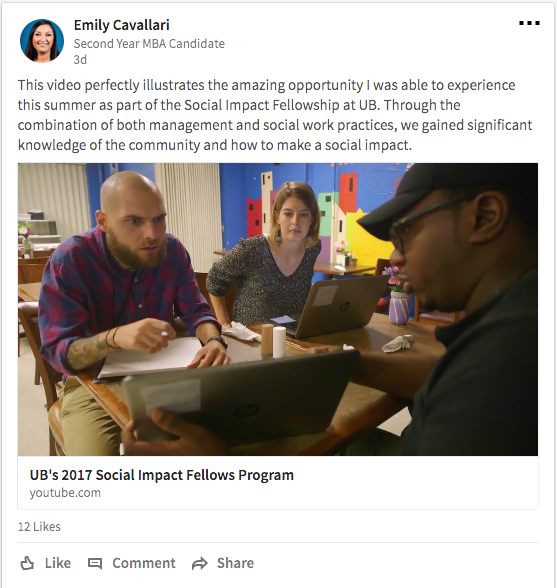Startups
On this page:
Horns up!
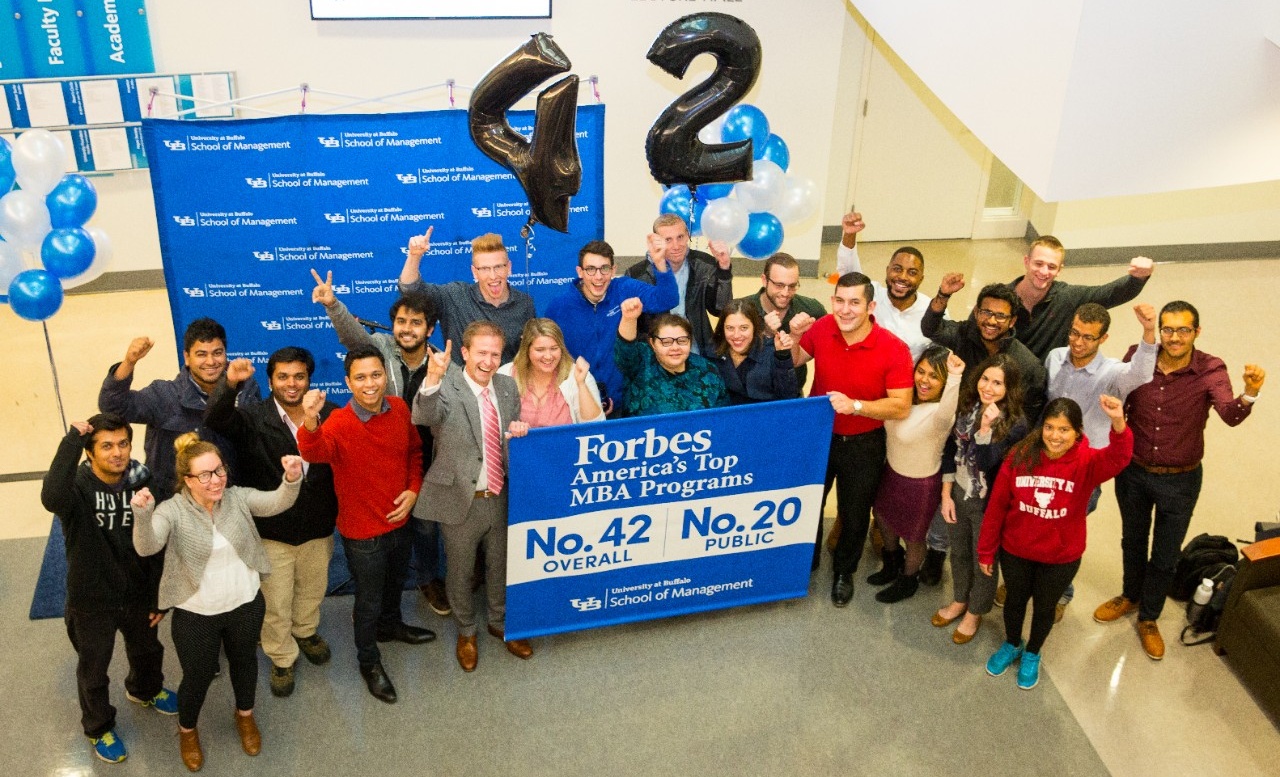
Photo: Meredith Forrest Kulwicki
This fall, the School of Management celebrated its rise in Forbes magazine’s ranking of the top MBA programs in the U.S. The UB MBA rose three spots, up to No. 42 among all schools and No. 20 among public universities.
Also last fall, Bloomberg Businessweek again ranked the School of Management’s full-time MBA program as one of the nation’s best. The UB MBA has risen 14 spots in the past two years, coming in at No. 46 for 2017.
Leaders on leadership

Jacobson
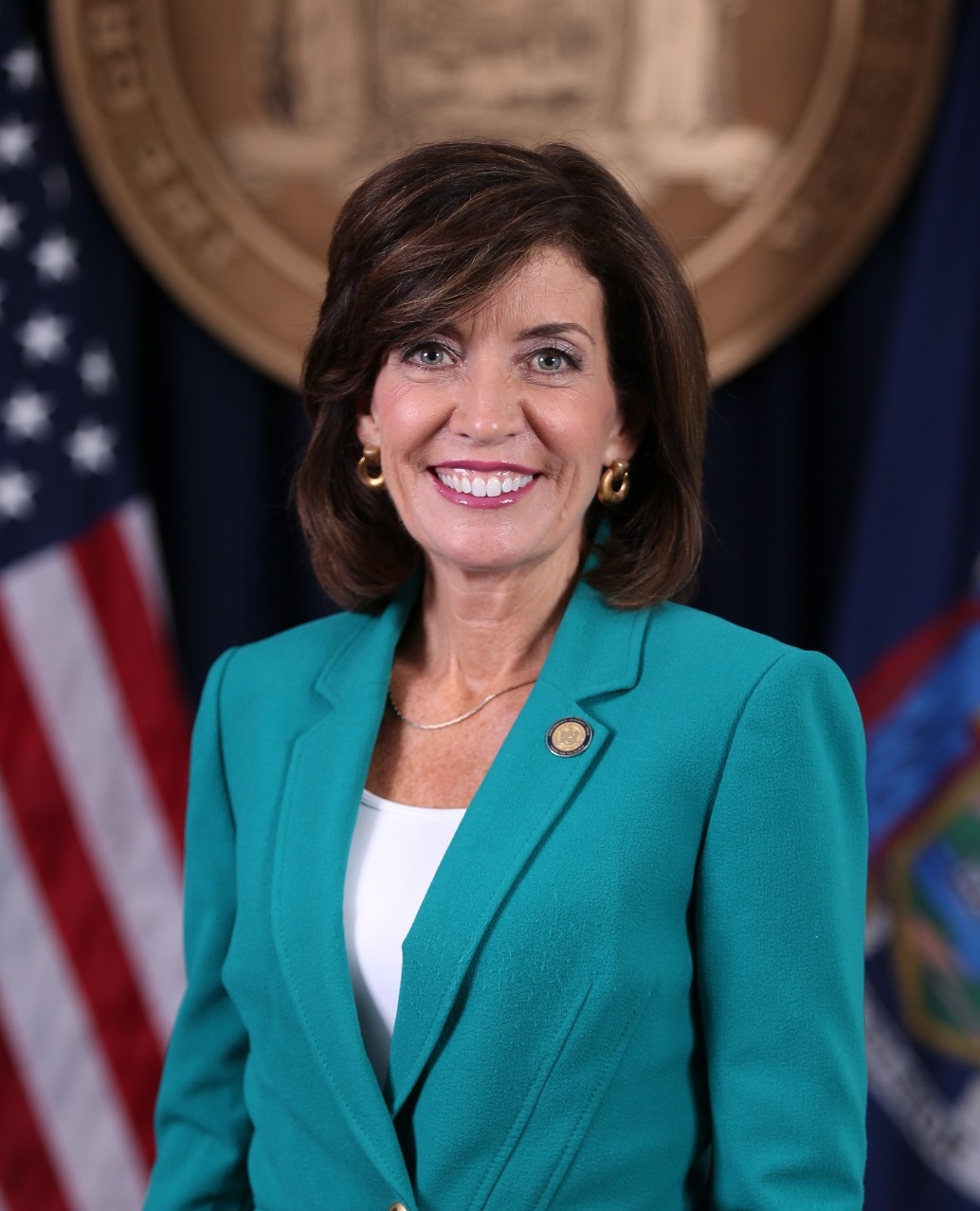
Hochul
As CEO of Xerox, Jeff Jacobson, BS ’81, leads more than 35,000 employees and is guiding the 111-year-old company through a strategic transformation.
New York State Lt. Gov. Kathy Hochul has served at every level of government and uses her current platform — as the highest female elected official in state government — to advocate for women leaders in all types of organizations.
This fall, Jacobson and Hochul brought their insights to the School of Management through the Leaders on Leadership Speakers Series, hosted by the Center for Leadership and Organizational Effectiveness (CLOE).
During a Q&A-style forum with MBA student Brandon Glasgow, Jacobson shared how he cultivates leaders at all levels of Xerox, including through a reverse mentorship program that pairs millennials with top executives, so they can learn from one another and the execs can stay current with trends and technology.
“Company culture is all about leadership, and that’s not just from the CEO or my direct reports,” he said. “In fact, I tell them, ‘If the only leaders in this company are the top 11 people on the organizational chart, we’re in trouble.’”
A few weeks later, Hochul joined Dean Paul Tesluk on stage to discuss the need for more women in leadership roles, and how organizations, government, and men and women alike can encourage and develop women leaders.
“Leaders demonstrate confidence in themselves — it’s not arrogance, but a quiet sense of confidence,” she said. “Women don’t always inherently have that, and I see that in politics a lot. But that’s easy to change. You may not be able to change culture or society, but you can change what’s in your own head if a lack of confidence is holding you back. Practice walking into a room like you own the place.”
For more of what Jacobson and Hochul said, visit On Leadership, the school’s leadership blog, at mgt.buffalo.edu/onleadership.
Staley joins UB in social innovation role
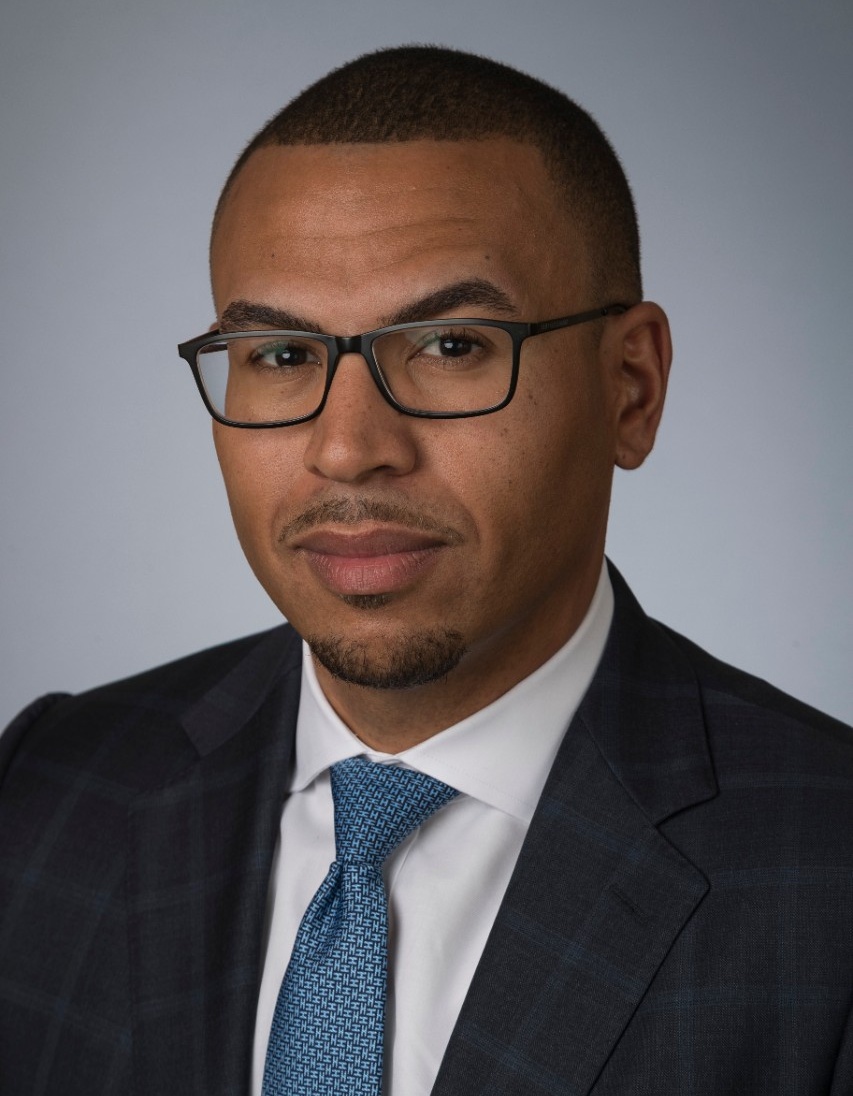
Staley
Social innovation is taking root all around us. Organizations are partnering to identify and apply novel approaches to address challenging societal issues, and the School of Management is helping to lead the way.
In September, Ezra Staley, JD/MBA ’09, was named executive director of social innovation initiatives, a new position that reports jointly to the deans of the School of Management and the School of Social Work.
In addition to overseeing the social innovation activities already underway, such as the Social Impact Fellows program and a social sector innovation course, Staley is working strategically to develop and introduce new programs and initiatives and foster UB’s leadership role in the community on social innovation projects.
Prior to his role at UB, Staley was a vice president at M&T Bank, where his most recent title was senior product manager. While in M&T’s Executive Development Program, he served in various rotations, including director of finance and analytics for the Buffalo Promise Neighborhood and government affairs relationship manager.
“Ezra’s experience solving complex problems and achieving results through collaboration and relationship building make him an outstanding fit for this role,” said Paul Tesluk, dean of the School of Management. “With Ezra’s help, we look forward to taking our social innovation activities to a new level.”
Introducing our executives in residence
Several industry leaders have joined the School of Management recently as executives in residence, a new role that allows us to leverage their experience to enhance the school’s programs, provide real-world learning opportunities for students and connect the school with top organizations in their fields. We’ll introduce each of them over the next several issues, starting with Larry Zielinski, below.
Zielinski strengthens health care management focus
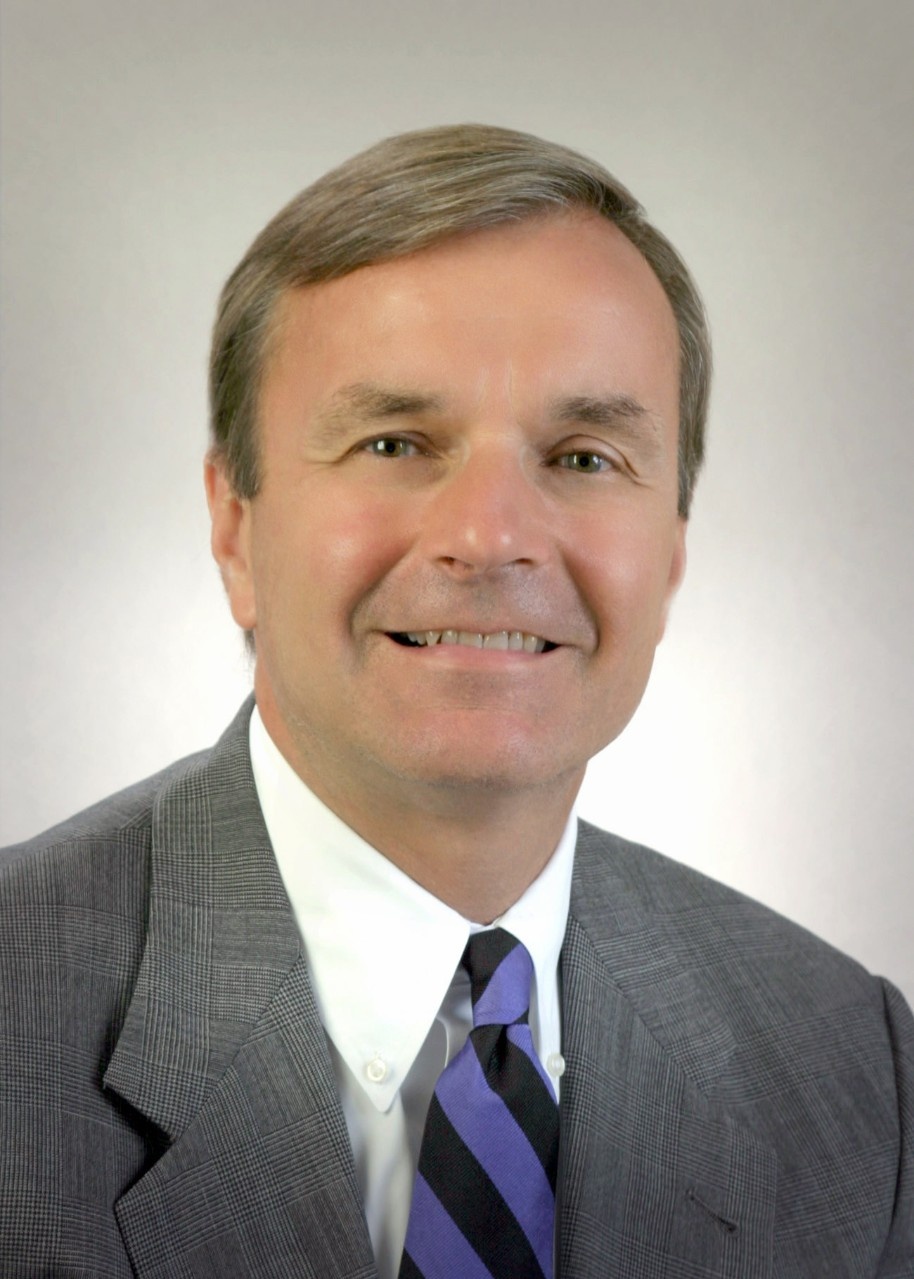
Zielinski
With the health care industry facing challenges in cost, efficiency and access, the School of Management is training future leaders with a robust and growing portfolio of programs and partnerships in health care management. Larry Zielinski brings 25 years of industry experience, including terms as president of two health care organizations, to his role as executive in residence for health care administration.
“I’ve worked with every part of the system, from primary and specialty care physicians, to hospitals and home health care services, to insurance companies,” said Zielinski, MBA ’77, who built a successful banking career before transitioning to health care in 1991. “Today, the need is greater than ever for clinicians and health care leaders who have strong management skills.”
Zielinski joined the school as an adjunct instructor in 2012 and took on his current role two years ago. Since then, he’s collaborated with the Career Resource Center to strengthen and establish relationships with health care organizations to provide job, internship and experiential learning opportunities for students.
In addition, Zielinski teaches three graduate-level classes: “Business of Health Care,” “Innovation in Health Care” and “New Models in Health Care Delivery.” He’s worked with faculty to develop electives for the MBA health care management concentration in health care analytics, economics, finance, law, policy and operations. Zielinski also represents the school on several interdisciplinary projects at UB and in the community, and has hosted several panel discussions — with more to come — to build the School of Management’s reputation as a place for intelligent discussion on health care management issues.
Distinguished speakers: Malala Yousafzai and Theresa Payton

A packed Alumni Arena heard Malala Yousafzai open the 2017-18 Distinguished Speakers Series. Photo: Nancy J. Parisi
For 30 years, the UB Distinguished Speakers Series has brought influential voices from across the world to share their thought-provoking perspectives in Buffalo. In the 2017-18 season, the School of Management helped continue this tradition by sponsoring talks from Nobel Peace Prize winner Malala Yousafzai and cybersecurity expert and former White House CIO Theresa Payton.
A capacity crowd of 6,500 gave a standing ovation to Yousafzai as she took the Alumni Arena stage in September. Sponsored by the School of Management’s Center for Leadership and Organizational Effectiveness (CLOE), Yousafzai kicked off the 31st annual series and used the opportunity to share her story and discuss such topics as girls’ education, separation of church and state, refugees and climate change.
Before the lecture, CLOE presented a panel discussion, “Leadership through the Lens of Malala,” featuring faculty members Dorothy Siaw-Asamoah, Jim Lemoine and Dean Paul Tesluk.
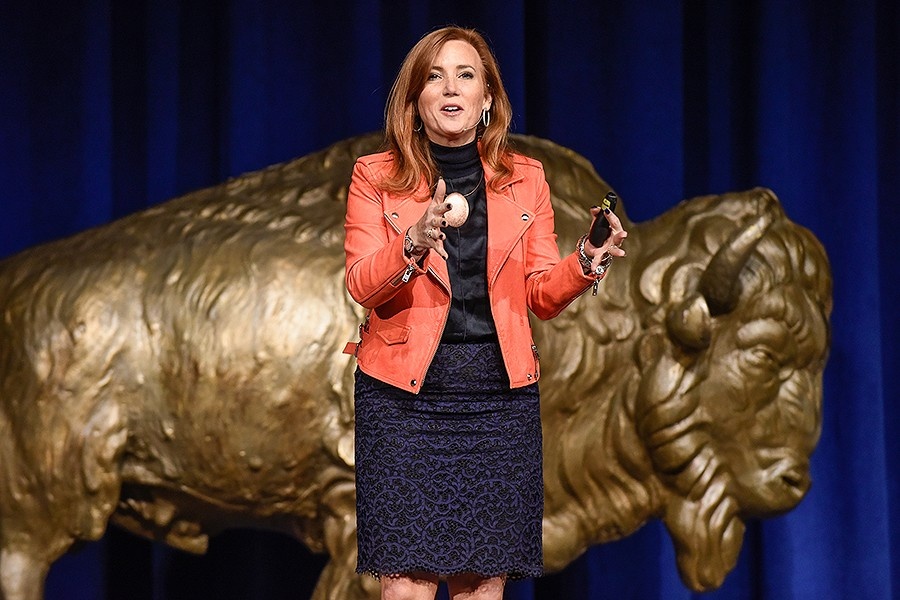
Cybersecurity expert Theresa Payton talked about the Equifax data breach and the 2016 election during her lecture. Photo: Joe Cascio
Payton didn’t mince words when she took the stage in October, saying cybersecurity in the U.S. is “totally broken.” Payton served as chief information officer at the White House under President George W. Bush. She currently serves as CEO of Fortalice Solutions and is co-founder of Dark Cubed. Payton shared advice on how to protect sensitive information online and discussed the Equifax scandal, the 2016 election and the need to increase diversity in the cybersecurity field.
Her lecture was sponsored by the School of Management Alumni Association, the Center for Entrepreneurial Leadership (CEL) and the MBA program. Tom Ulbrich, CEL executive director, served as moderator.
This spring, the School of Management will join three other UB schools in sponsoring the final 2017-18 speaker: TV icon Alan Alda.
What's Trending?
School of Management conversations in social media
